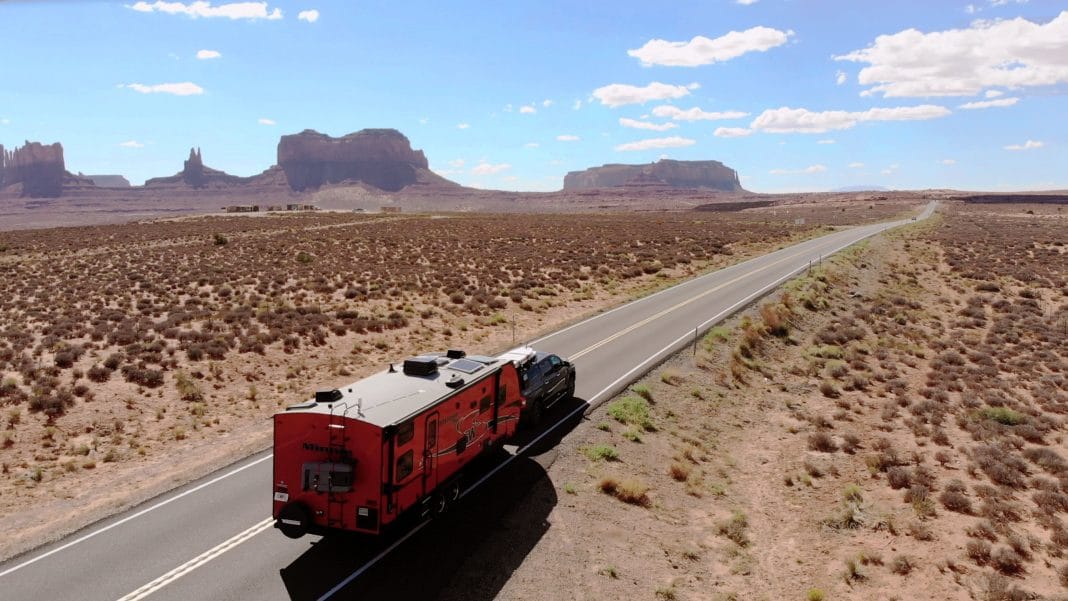Everything must go. Everything not bolted down in the sprawling Country
Coach Holdings LLC plant in Junction City, Ore., is to be sold at
auction today and Friday (follow the webcast at www.hilcoind.com), with proceeds going to satisfy creditors of the bankrupt RV manufacturer, according to The Register-Guard, Eugene, Ore.
Copiers, cabinets and couches. Sanders, saws and routers.
Generators, flat-screen televisions and microwave ovens. Enough nuts,
bolts, washers and screws to stock a hardware store.
Pallets stacked with company documents, including such
intellectual property as blueprints, schematic drawings, parts lists and
customer lists are up for bid, as are pickup trucks, minivans, golf
carts, and of course, Country Coach’s signature, über-luxury motor
homes.
Even the contents of former CEO Jay Howard’s office – including his business books, desk and three safes – are up for bid.
It’s a sobering end for the once high-flying Country Coach, which at its peak employed about 2,000 Lane County area residents.
In all, some 1,600 lots will be sold at auction, to buyers who
show up at the plant to bid in person, by phone or via the Internet. As
of Wednesday, the auctioneers had registered 335 bidders in-person, and
another 150 who intend to bid online, said Rob Beal of Commercial
Industrial Auctioneers in Portland, which is conducting the auction in
partnership with Hilco Industrial.
The big-ticket items are 10 completed motorcoaches, which in
ordinary circumstances would have had retail prices ranging from
$400,000 to $900,000. In addition, 17 coaches in various stages of
completion will be auctioned as well.
Beal wouldn’t hazard a guess at what the auction will yield.
Conceivably, a single bidder could submit a bid for everything with an
eye toward restarting the business or starting a new company.
“It’s been entertained,” Beal said. “But no one could come up
with the cash to keep creditors and the (bankruptcy) trustee happy.”
Country Coach filed for Chapter 11 bankruptcy last winter to
gain breathing room from creditors while it attempted to reorganize its
finances. The company resumed production with a skeleton crew last April
at a rate of one coach per week, but shut down again last fall amid
faltering sales. In November, a judge converted the case to a Chapter 7
bankruptcy and ordered the company’s assets liquidated to satisfy
creditors – namely Wells Fargo Bank, the company’s main secured
creditor.
Prospective bidders include other RV manufacturers,
contractors, cabinet shops, welders, fabricators, dealers and
individuals like Bob Relyea, a retiree who traveled from Dallas, Texas.
Relyea said he’s interested in buying one of the finished coaches, if he
can find a bargain, to replace his 2000 Country Coach Magna.
“It doesn’t hurt to come and take a look,” he said.
Dan Russell, a partner in Oregon RV Repair, an RV service
center in The Dalles, was checking out parts, many of which are “too
fancy” for the vehicles his business deals with.
Ed Read and Pat Mason from Oregon Motorcoach Center, an RV
service facility started by Country Coach founder Bob Lee, were checking
out parts and materials they may bid on for their business.
Read worked at Country Coach for nearly 32 years and said it
was “terribly sad” to see the once-proud company being sold off in
pieces.
“I put a lot of my life into this company,” he said. “I never thought it would come down to this.”
Bert Bergman of Port Townsend, Wash., was looking for stuff
that could have marine applications that he could resell on his eBay
business, Spit in the Ocean.
“Most of the stuff in these land yachts you can use in a boat,” he said.
As he walked through the cavernous paint shop, Bergman said it was sad, in a way, to see an RV maker get liquidated.
“On the other hand, these dinosaurs got to get off the road,”
he said. “So maybe we’re just putting the rich out of their misery.”
Virtually the entire sprawling plant, including the executive
offices, was open for prospective bidders to walk through. Former CEO
Howard’s office contained remnants of his tenure, including three safes,
a portrait of Howard and Country Coach founder Bob Lee in happier
times, and a framed copy of a 2007 New York Times article about Country
Coach and other RV makers, headlined “Housing Crisis? Try mobile
McMansions.”
A dozen or so books were stacked in three piles on Howard’s
granite-topped desk. Titles included such business bibles as “Good to
Great,” “The Way of the Guerilla,” “Guts! Companies that Blow the Doors
off Business-as-usual,” and “Letitia Baldridge’s New Complete Guide to
Executive Manners.”
At the bottom of one stack was a book that hinted at the stress
Howard was under as he fought to keep his company alive over the past
year: The Mayo Clinic’s “Five Steps to Controlling High Blood Pressure.”
By RV Business


